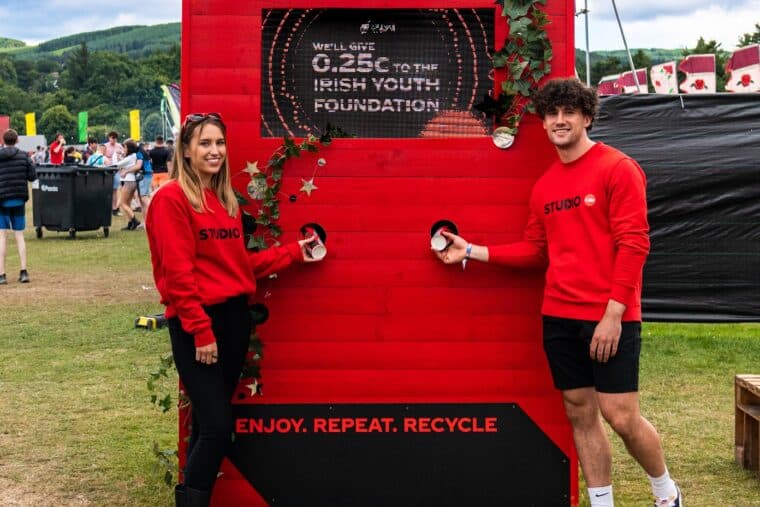Sustainability Strategies for Your Next Event
01/03/2023

Climate change is, quite literally, one of the hottest trends. It has been a major subject for the past decade, but as awareness has grown, many industries including events have been highlighted as a critical contributor.
Going green is more than a passing fad, it’s a new way of life that the events industry has the responsibility to embrace. Verve is proudly ISO 20121 accredited and we continue to go the extra lengths to make sure our offices and events are environmentally friendly. Because, of course, it should come as no surprise that companies who fail to lessen their environmental footprint will see their audience go elsewhere in search of more socially conscientious brands and competitors.
The most comforting part is… there are numerous ways to accomplish a lessened footprint and it really isn’t as hard as you think to make environmentally conscious decisions when planning an event.
Go Hybrid!
In person events are unrivaled, however, there is a more sustainable way to engage global guests. Going hybrid is one of best approaches to lessen an event’s carbon footprint, which should come as no surprise. The most detrimental factors—transportation, accommodation, food production, and venue energy—are being reduced, it is also more accessible for guests who may struggle to attend in person events.
The use of computers and network data transfer still cause emissions, so it is crucial to keep in mind that the hybrid format isn’t flawless. However, sustainability isn’t about being perfect; it’s about making deliberate decisions to support positive change.
Careful selection of suppliers!
Your carbon footprint can be significantly reduced by picking environmentally conscious suppliers. When feasible, choose suppliers that are local and source materials from local businesses.
When it comes to sustainability, it is critical to ensure that your suppliers share your values. Verve proudly requests all new suppliers to sign our sustainability policy. We also request their sustainability policies ahead of time and conduct an annual survey to learn more about what they are doing to improve their business in this area.
Donate leftover food
Despite your best efforts to work out the exact amount of guests and their food intake, you will have leftover food from events, that unfortunately, will go to waste. It is waste that often cannot be helped. You can’t win, you have too much food and it’s a waste, too little and you upset your guests.
Consider donating all leftover food to a charity or food bank. There are many around the UK, including City Harvest and Food Cloud. Both charities do some incredible work in the UK and Ireland by collecting surplus food from all arms of the food industry including farms, manufacturers, wholesalers, retailers, caterers and, you guessed it, events. By collecting all the food waste from all arms of the food industry they are able to create and deliver free nutritious meal to millions of those in need.
Sustainable SWAG
SWAG has become a societal norm at corporate events to generate excitement for an event whilst elevating brand awareness. It is possible that some of these products will end up in landfills.
In light of this, why not think about purchasing eco-friendly giveaways that your attendees may use again and again? Reusable keep cups are an excellent illustration of this; Chilly’s offers co-branding on all of their products, making them the ideal sustainable swag.
Try requesting participants to complete a short survey in order to collect their SWAG; this way, you can ensure that attendees want the item rather than simply accepting it because it is there.

Waste Management
There are many ways to manage waste at events, in many cases you have to heavily rely on the attendees to conform to the proper waste management etiquette.
Try using these simple steps to increase waste management:
- Enough bins around the venue
- Clearly labelled waste bins
- Restrict aperture of bins (e.g., rounded openings for bottles, cans etc. and slit openings for paper)
- Positive encouragement for recycling (i.e cup deposits, monetary rewards for returning waste)
By starting early and making an active commitment to holding a cleaner and greener event, you can begin to implement systematic changes that will help you make more environmentally conscious decisions.

Verve is happy to be ISO 20121 accredited, and we are committed to becoming a truly environmentally conscious organisation.
Interested in creating more sustainable events and brand experiences? Talk to our Head of Sustainability Aideen@verve.ie
– This blog was written by Verity Millican from our UK team.
What's
Going On
Our weekly blog on the world of
brand experience, tech, events, advertising and marketing.

